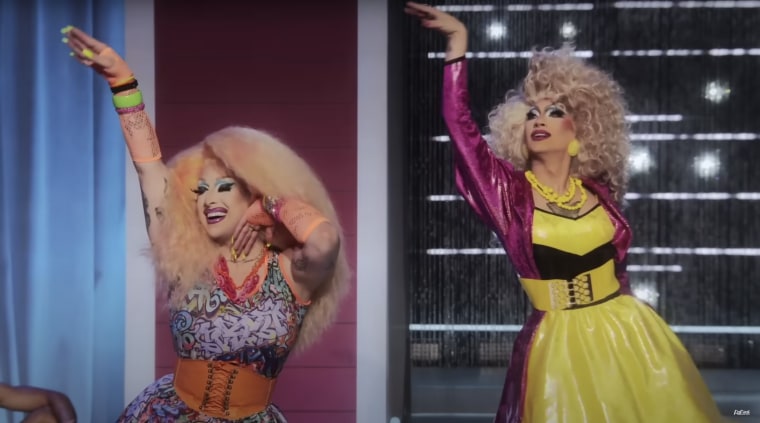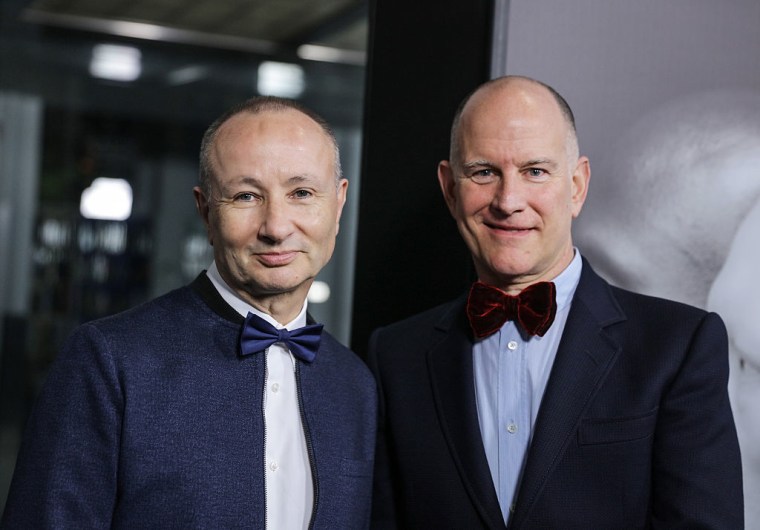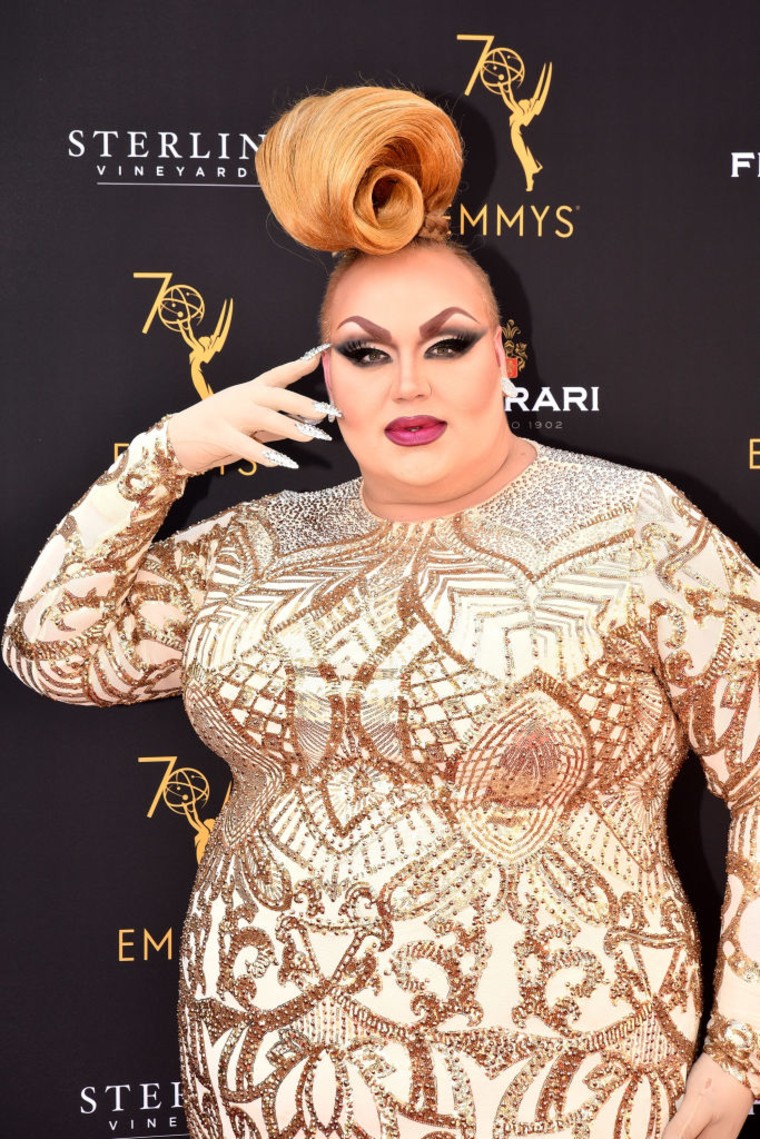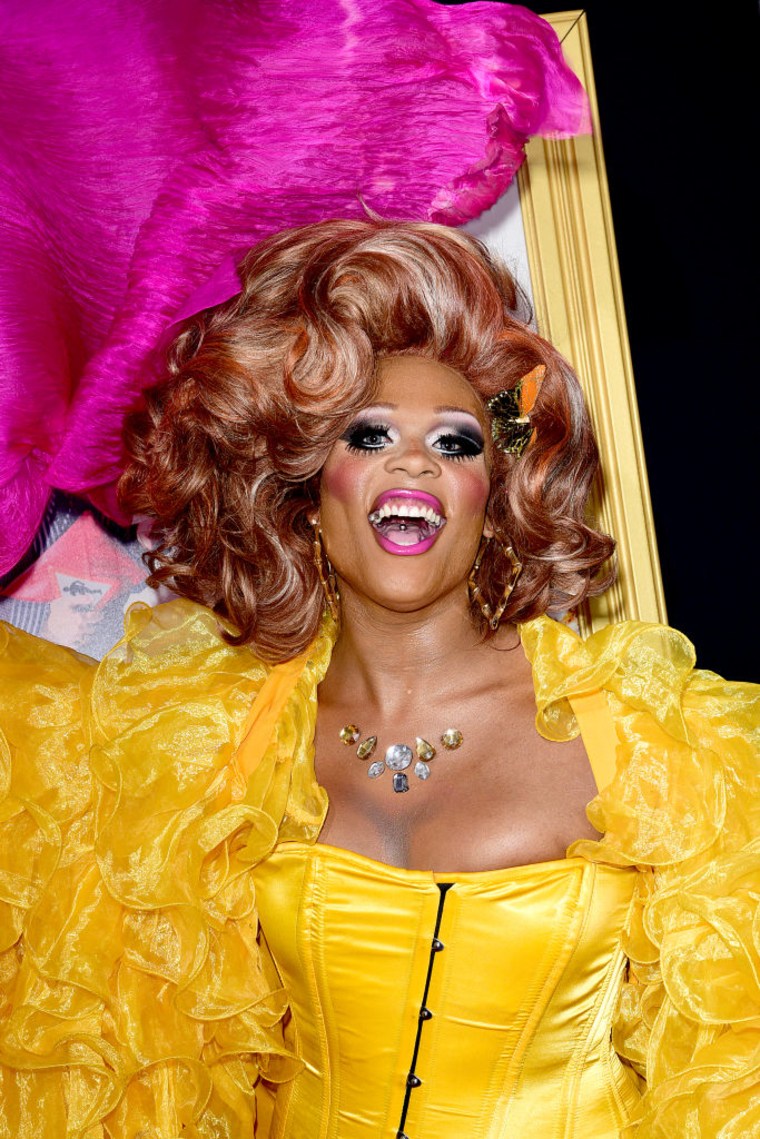In the musical parody "Wigloose," the art of drag is banned by those in power in a small country town, leading drag queens to band forces and fight back.
While the "RuPaul's Drag Race" performance was a satirical take on "Footloose," it drew the praises of Kevin Bacon, star of the original movie, who wrote on Instagram that it came “at just the right time.”

Starring Loosey LaDuca, "Wigloose" could also serve as an allegory of what is happening right now in America. Countless bills targeting drag performers and the transgender community have bubbled up in state legislatures. It's also become a major talking points for Republican governors, including Florida’s Ron DeSantis and Arkansas’ Sarah Huckabee Sanders.
Some bills have even begun to pass, most notably in Tennessee where on, March 2, Republican Governor Bill Lee signed into law SB003, criminalizing drag performances in public or in any location within one thousand feet of a school, church or park at any time of day that a minor may see, with the intention of protecting children from inappropriate entertainment.
While this law was scheduled to go into effect on April 1st, it was temporarily blocked by U.S. District Judge Thomas L. Parker, who was appointed by former President Donald Trump in 2018, one day before, after a Memphis theater company filed a lawsuit in opposition of the ban.
The drag bans are being advanced alongside bills that address trans people explicitly, though trans and drag are not one and the same. For example, on the same day as the drag ban, Tennessee Gov. Lee also signed SB001, banning gender-affirming care for transgender people under 18, like puberty blockers, hormones and surgery.

While the “Ru-sical” parody might have seemed like a powerful enough statement by MTV’s Emmy-dominating reality show, the rise in legislation has moved the team behind “Drag Race," namely its production company World of Wonder founded by Randy Barbato and Fenton Bailey, to take a rare step into outright activism with the formation of The Drag Defense Fund in conjunction with the ACLU.
“We’ve usually steered clear of being overtly political,” Barbato tells TODAY.com. “Like Ru said long ago, ‘Every time I bat my eyelash, it’s a political statement.' And just being able to still have this show on the air is our work. But as we’ve been watching the vitriol grow and the number of bills increasing, it just felt like there must be a way to fight back. We’ve been fans of the ACLU for a very long time. They are effective, they’re strategic, and they understand how insidious this battle is.”
“It isn’t just drag, it’s also trans people,” Bailey tells TODAY. “And it’s not just our civil rights … we’re like the canary in the coal mine. If they succeed with this, they’re coming for other communities too.”
Along with the launch of the fund, RuPaul posted a video statement to social media on March 8 saying, in part, that these proposed bans are tactics used by politicians to distract the public from issues like jobs and healthcare.
RuPaul is far from the only person fighting back. Videos of local drag performers, trans students, and parents speaking at town hall meetings fill social media platforms.
Celebrities have spoken out as well, including Jamie Lee Curtis, Maren Morris, and Mark Ruffalo, who said on his Mastodon account, “We can’t sit back and watch our trans brothers and sisters and favorite drag artists be attacked.”
“Drag Race” alumni who have used the platform to become celebrities in their own rights have taken up the charge too, in a fight that, especially for those who are also trans, has been ongoing for years.
“I, personally, have never felt safe,” drag performer and trans advocate Eureka O’Hara tells TODAY.

The East Tennessee native has competed in multiple seasons of “Drag Race” and hosts the Emmy-winning HBO docuseries “We’re Here” in which she and fellow hosts Shangela and Bob the Drag Queen travel to small towns across America to teach locals the art of drag.
The most recent season showed backlash from some communities to the show’s production, anti-drag and anti-LGBTQ protestors lining local pride parade routes as well as Eureka's personal coming out as a trans woman.
“Oftentimes queer individuals will choose a path of discomfort to make everyone else more comfortable. And that creates unhappiness and imbalance in people’s lives. It most certainly did in mine. It led me into addiction. It led me into a dark path where I could have self-destructed,” Eureka says.
While the drag star came out as a trans woman publicly this year, she had previously begun a transition in Tennessee over a decade ago before deciding to turn back.
“I de-transitioned because of the abuse and the mental manipulation that I received from those ‘traditional thinkers’ in East Tennessee, so that I could find my success and my place in this world. Then realizing, even through my success, I wasn’t happy until I decided to be my authentic self.”
Eureka says the de-transition process she went through gave her a unique perspective on the impact of proposed bans of healthcare treatment for trans youth.
“Being forced to stop treatment and cleanse your body of it is actually very dangerous in the body. And I know that from firsthand experience because I did it at 23," she says, saying it took her an estimated "two to three years" before her hormones were "anywhere near balanced."
With these laws, some in the LGTBQ+ community see history repeating itself.
“It’s the same playbook, year after year, decade after decade,” drag performer Peppermint tells TODAY.

“The attacks that (lawmakers) are levying on drag entertainers are pretty much the siblings to the attacks that they were levying on gays in the 80s, 90s, and early 2000s, especially when marriage equality was a hot topic. It’s incredibly important for people to realize that this didn’t come out of nowhere."
The “Drag Race” alum and first transgender woman to originate a principal role on Broadway encourages people to look beyond the headlines focusing on drag entertainers, and toward the trans community.
"It’s very important that we realize that several bills have passed that are successful in dismantling health care protection for trans minors and adults. If it’s just ‘protect the drag shows,’ then we are failing the rest of the community," she says.
Navigating this broad and complex playing field, Barbato and Bailey of World of Wonder say, is why they are relying on the infrastructure and legacy of the ACLU to give The Drag Defense Fund further reach. The fund allows people to make donations to protect this form of creative expression in the U.S.
“The ACLU has been around for over 100 years and they’ve been so successful at winning battles in the courtroom while also educating. So we have to rely on them,” says Barbato. Bailey adds, “They have incredible amount of experience, and the reality is that this is not a fight that will be won overnight.”
It’s not a fight that will go un-televised, according to the “Drag Race” producers, who promise to keep providing the show at a global level, through franchises in 15 countries around the world, with the same level of innate political DNA and uplifting entertainment value that they hope will show audiences that there is nothing to fear in drag.
Eureka, Peppermint, and a bevy of fellow drag legends will join forces for a “Drag Isn’t Dangerous” telethon streaming live on May 7 raising money for LGBTQ+ organizations.
The message from those in favor of The Drag Defense Fund is one of resilience, both on individual and collective levels.
“Look at any attempt to turn back the clock and put the toothpaste back in the tube. Yes, the tragic thing has been the cost of those campaigns, but they’ve all failed. The only way is forwards,” Bailey says.
“Drag is not going away,” says Peppermint. “Trans folks aren’t going to go away. You cannot legislate people out of actual existence.”
“I’m going to get up every morning and I’m going to convince myself that I have the strength to fight against anything that’s going to come against me today,” says Eureka. “Because I deserve it. And I deserve the life that I was given by my God that gave it to me. Now, whether you agree or not, that’s on you. It has nothing to do with me.”